
views
Broaching the Subject of Repayment

Set up a meeting in person. Invite them to chat over a coffee or lunch. Keep the situation casual, so your friend feels comfortable talking to you openly. You can email, call, or text, but people are more likely to fully understand this conversation, if you conduct it face-to-face where they can see your body language and facial expressions. Make sure you're able to meet one-on-one. You don't want to embarrass your friend. Send an email, text, or call and say something like, "Do you have some time to meet and talk this weekend?" If you want to give them a heads up on what the conversation is about, you can say something like, "Can we meet up Friday to talk about that loan I gave you a few months ago?" If you want to make sure your friend is comfortable, let them pick the location. Say something like, "I wanted to talk about that loan I gave you awhile back. Can we meet at your place or somewhere close by to talk about that this week?"

Remind them kindly. In some cases, your friend really may have forgotten about the money owed to you. Start by reminding them about the loan. You can say something like, “I was happy to give you that money last month to help out, but I was hoping you could pay me back before my rent is due.” This reminds them that the money was given and acknowledges that the money was a loan, in case they had misinterpreted the loan as a gift.

Be direct. If the gentle reminder doesn't produce an apology and offer of repayment, address the issue head on. Sometimes, phrasing your request for repayment as a question can soften the blow. Try saying something like, “Do you know when you'll be able to pay me back?” Insist on a precise answer to your direct question. Responses like, “I hope to get it back to you in the next few months,” are not adequate. If your friend avoids responding or responds vaguely, push them to set a deadline. You can say something like, “I'm understanding the next few months as meaning no later than three months from today. Can we agree to that?” P.T. Barnum P.T. Barnum, Business Mogul and Expert on Wealth and Success When asking a friend to repay a debt, do so with empathy, tact and patience. Outline the terms agreed upon, acknowledging circumstances may have changed. Then, compromising where possible, politely persist until an equitable plan materializes, preserving both friendship and finances.

Avoid letting the loan go unpaid. The longer you allow your friend to avoid payment, the less likely you are to have the loan repaid. Additionally, if you end up needing to take legal action, letting the loan go unpaid for significant periods of time beyond the original repayment date indicates to the court that you may not have expected repayment.
Getting the Loan Repaid

Tell them what you need the money for. Oftentimes, people who rely on friends or family members to give them money may not be great at handling their personal finances. These people may selfishly think that having money for themselves is more important than repaying the loan. In these cases, it may be beneficial to let the person know why it's important that they pay you back soon. Try saying something like, “I have to pay my property taxes next month, and I'm really depending on you repaying me to make that payment.” You can even say something like, “My budget has been stretched pretty thin because of the loan I gave you, and repaying it would help me get back on track financially.” Remember, you don't need an actual reason to want the money back. The loan should be repaid, but this is another way to improve your odds of getting your friend to pay you back without losing the friendship.

Ask them to repay some of the money. If your friend is unable to pay the full amount owed to you, ask if they can pay some of the money to show they are serious about making a repayment effort. The more upfront and honest your friend is about their financial situation, the better able you will be to determine whether they can truly afford to pay you back, or if they need more time. Regardless of their financial situation, recouping some of your losses is always preferable to none. You could say something like, "It would be helpful to me, if you could make a payment towards the loan today." If you're worried your friend may truly be having trouble repaying the money, say something like, "I know you're still struggling, but is there a small amount you could pay me now?"

Set a deadline. Sometimes, people simply work better with a timeline. Let your friend know you'd really like to be fully repaid by a certain date. Be willing to extend this if you can. You probably don't want to lose your friend over a personal loan, but if you really need the money paid back, setting a specific deadline may help. Before your meeting, think through some possible payment plans you think may be feasible for your friend. Presenting these to your friend will take the pressure off them to come up with these ideas. Say something like, "What amount would you be able to get by without each month?" Try to help your friend figure out when they will be able to make payments by saying something like, "Do your bills come out at the first of the month or towards the end? You can pay me at the opposite time, to make repayment easier for you."

Create a repayment plan. Schedule due dates and payment amounts, and ask your friend to honor the agreement. You can even request that they sign a formal document at this point, if you've already tried the other methods of getting repayment without effect. This can make it easier for friends to return your money, since they don't have to repay it all at one time. Don't shy away from asking your friend to commit to a repayment plan or from asking them to sign a formal agreement, especially if you have loaned them an amount of money that is significant to you. Start by saying something like, "This may be overkill, but I want to make sure we're both on the same page to repay this loan. I wrote up something to help us both stay on top of it." Make sure your friend understands your initial document is just a suggestion, and walk through possible changes to make repayment easier. You may say something like, "I know you have a vacation planned for May, would it be helpful for you if we skipped this month?"

Deduct the value of services. This may seem strange, but your friends are likely there for you when you need them. If the friend drove you to the airport, helped you with a home improvement project, or took care of your kids free of charge, consider deducting what you would have paid for the service from the amount they owe you. This is an especially good idea, if your friend really cannot afford to repay the loan. In some cases, it may even be appropriate to ask the friend to perform services in lieu of payments. For instance, if you need to go out of town, you can say, “I'm leaving for a business trip, and will be gone for ten days. Could you water my plants and watch my dogs? I'll deduct $300 from what you owe me.” If your friend is trying to pay you back, but struggling to financially, offer them the opportunity to help you instead. Say something like, “I really appreciate you trying to pay me back in the time we agreed upon, but would it be easier for you to watch my kids for me this weekend while I'm at a conference instead of paying me this month? I'd really appreciate the help.”

Decide what means more to you. In extreme cases, you may have to choose between getting your money back or keeping your friend. This will likely be a difficult decision, but if you've put in effort to get repayment and your friend simply can't afford to pay you back, it might be time to think of the loan as a gift.
Taking Legal Action
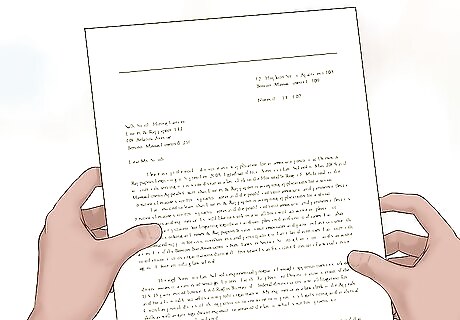
Send a demand letter. The first step in the process of legally recouping a loan is to write to the friend asking for repayment, and giving them a certain amount of time to come up with the money. You should talk to a lawyer prior to sending this letter, and have it notarized. The letter should also be sent by courier or through the mail using a signature tracking system, so you know and can prove your friend received it. Include as many specifics as possible in the letter. The letter should detail the exact amount owed, length of delinquency in repaying the loan, other attempted methods to recoup the loss, and potential court dates if the money is not repaid. For instance, your letter could say something like, “On December 3, 2015, I loaned Joe Smith $600 for his construction business. I asked for repayment by October 3, 2016. I have asked for repayment in person, in writing, and attempted to make a payment plan. Mr. Smith has been unresponsive. I am seeking legal action to recoup those losses, if I am not repaid by December, 3, 2016. At this time, we will schedule a court date to discuss the matter in the presence of legal counsel.” If your friend responds to the letter and pays the debt in the aforementioned time frame, there's no need to continue legal action.

Look into online legal claims resources. People Claim is one of the most popular tools, but there are a number of similar websites and even apps that make filing a claim to recoup a loan fast and simple. These online legal resources typically offer free and paid services. In most cases, you'll be advised to attempt to complete your legal claim without paying for service and add on paid assistance from the legal team, if your initial claim is not effective. Do your research into online or app based claims services. Most are reputable, but others are just out to take even more of your money without helping you recoup losses. You can read online reviews, check with the Better Business Bureau, or look for information on the site about the lawyers who will be assisting you.
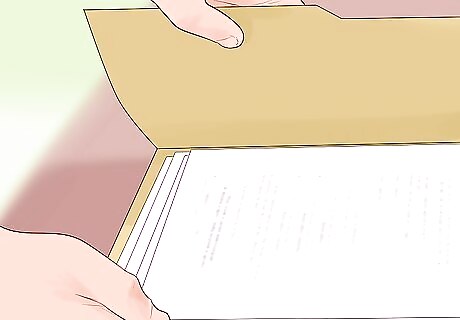
Gather your documents. Before you go to court or even talk to a lawyer, have as much evidence as possible available. Keep receipts, bank transfers, bank statements, any written agreements you had for repayment, and any emails or letters you've shared with your friend. All of this information may be important to prove you are truly owed repayment. In legal cases, the burden of proof always lies with the prosecutor not the defendant, so keeping good records will make it easier to prove your legal right to repayment.

Know the statute of limitations. The amount of time you have to recoup money from personal loans is different in every state. Do your research or ask your lawyer about any possible statutes of limitation before taking legal action.

Prove where the money came from. One of the keys to claims ending successfully is proving that the money you lent was earned legally. This may seem silly, but it's actually one of the most common ways people get out of repaying personal loans. If you wrote a check for the loan, simply offering bank statements from the account is adequate to show where your deposits came from. If you paid the person in cash, you may have more difficulty proving the loan ever happened or that you got the money from reputable sources. If you can show a bank withdrawal for the amount on the date in question, this may be adequate.
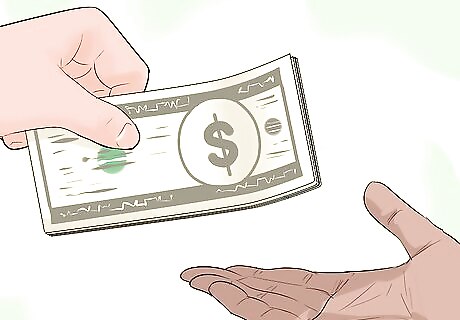
Collect following the decision. Even if you win a legal case, it's often difficult to enforce the agreement. Document every payment or missed payment, and return to court sooner rather than later. Simply avoiding court fines and legal fees may encourage your friend to make the payments they agreed to.
Lending Wisely

Ask your friend to sign an IOU. Many people do this prior to lending money to ensure they are protected later, if the friend refuses to repay. This is a great way to start the lending relationship off on the right foot because the terms of the agreement are clear from the very beginning. An IOU can easily be changed down the line, if your friend needs a little extra time for repayment. Starting with an IOU also makes it easier for you to take legal action later, if this step is necessary. Check out How to Write an IOU for more information.
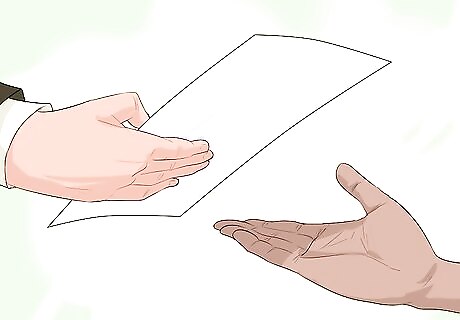
Put the repayment plan in writing. If you haven't asked your friend to sign an IOU prior to lending the money, you should still ask them to agree to a plan once they're able to start paying you back. Put this plan in writing and have it notarized. This makes it more legally binding, if you need to go to court later, and it will likely encourage your friend take the repayment more seriously.
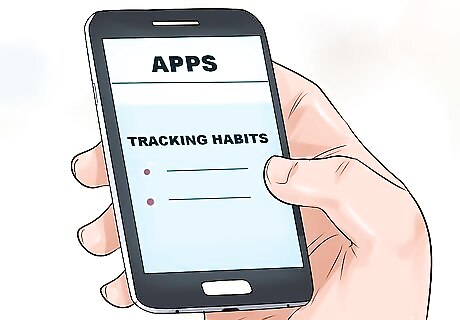
Use apps to make repayment simple. There are numerous apps available that make paying friends back any amount of money, from $50 for dinner to $50,000 for a small business loan, quick and easy. Use apps like Splitzee, Venmo, Square Cash, Splitwise, PayPal, or Google Wallet to simplify asking for and receiving money. Splitzee, Splitwise, and Square Cash are your best options, when the money lending situation is for a shared expense. For instance, if you pay the monthly bills in your apartment and have roommates who pay you back. Venmo, PayPal, and Google Wallet are better for large amounts of money. These applications allow you to send bills and reminders to your friend, and most of them have no fees, if you're simply transferring money from bank to bank.

Assess your friend before lending money. Ask questions about why they haven't gone through more traditional channels (banks, credit cards, etc.) for financing. Try to find out whether their current hardship truly is temporary or if understanding finances is something the friend struggles with regularly. You may not want to lend money to a friend, if they are very unlikely to repay the loan. Start by asking something as simple as, "Why are you asking me for a loan?" It may be uncomfortable, but ask your friend, "Do you have a large amount of outstanding debt?" Before you lend them money, it's fair to expect them to be honest about their financial situation. Ask if they can agree to a repayment timeline before lending, "I understand you're struggling financially now, but when do you think you'll be back on your feet?" Perhaps most importantly, ask you friend what they're doing to get out of debt. Say something like, "What are you doing right now to change your financial situation? Can you get a second job or take on more hours at work?"

Avoid lending to friends you don't want to lose. Despite your best efforts, you may still lose your friend, your money, or both if you lend to a friend. Before you get financially involved with your friend, make sure you're willing to lose them or the amount of money you've loaned them.




















Comments
0 comment